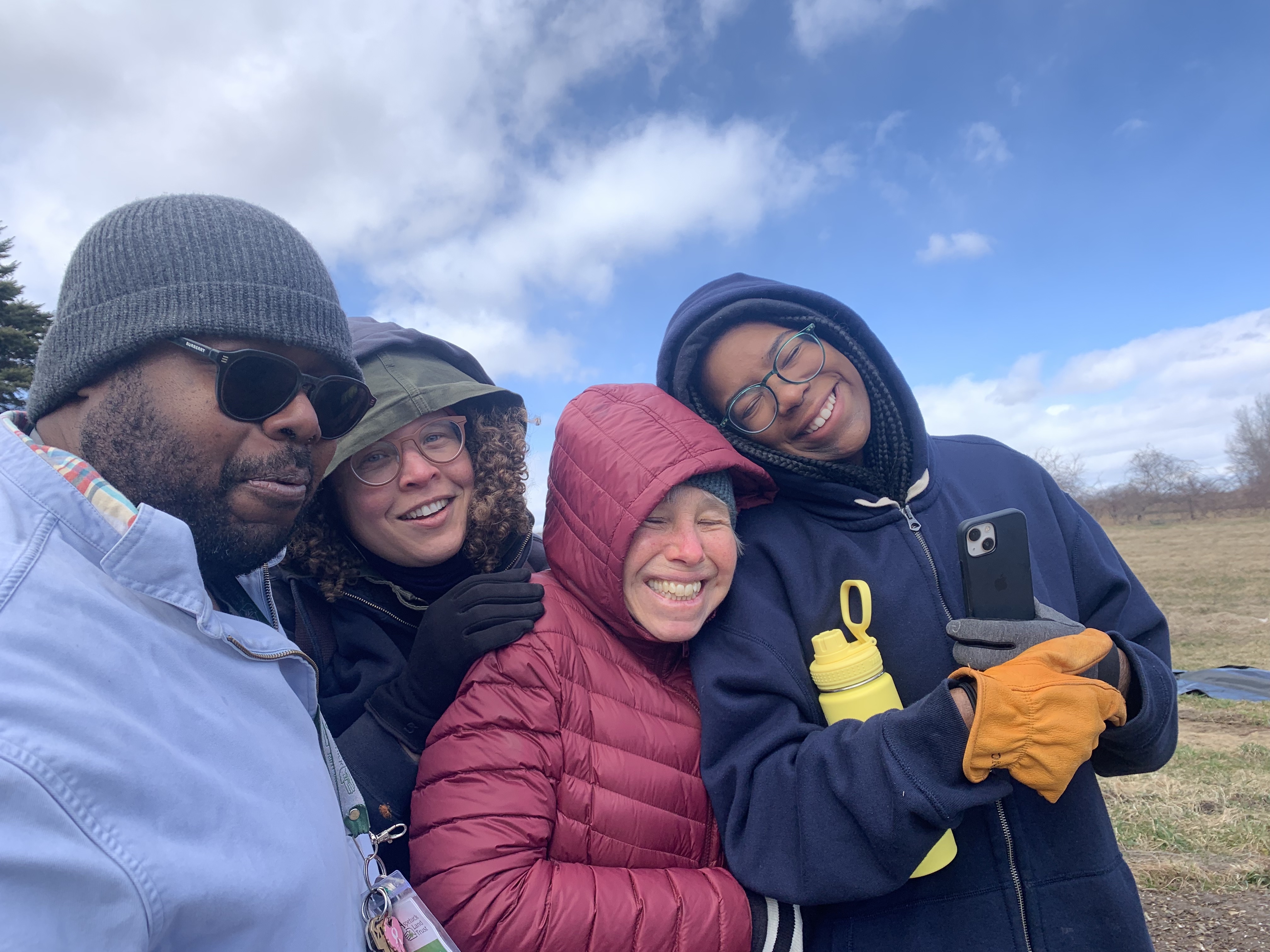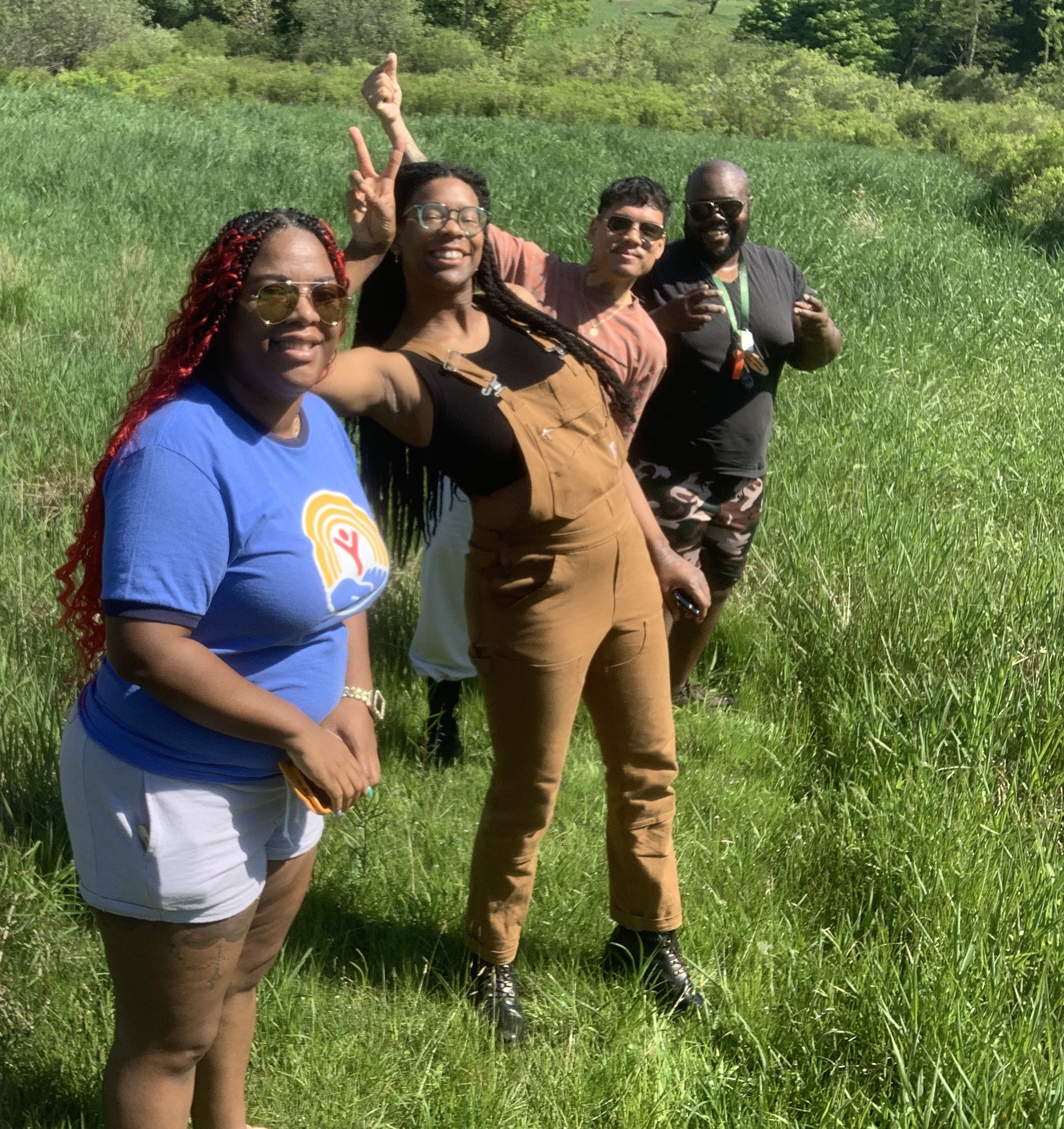Funders as Fellows: The Seeding Power Experience
By: Adam Liebowitz, Community Food Funders Director, North Star Fund
We’re in a moment—politically and culturally—where it can be tempting to retreat as funders. The need is so great, and what we have to offer can feel so insufficient. It might feel safer to avoid scrutiny, and not risk being seen as out of touch or inadequate.
Our experiences with the Seeding Power Fellowship teach us to fight that urge, engage, and explore the ways your unique personhood can be a resource to those with whom you share a common goal.
Community Food Funders first launched the Seeding Power Fellowship in 2019. We are currently accepting applications for our third cohort (deadline: April 30). This provides a natural time to reflect on what we’ve learned along the way.
Seeding Power was designed as a leadership development and movement-building program that brings together nonprofit leaders from different sectors of the food system. The idea was that by building relationships, learning about each other’s work, and forming a shared analysis of what’s wrong with our system, fellows would find new ways to work together. By doing so, a more cohesive movement could start to take shape.
Ultimately, that first cohort proved our hypothesis—despite bumps in the road and an experience cut short by the pandemic. However, during our evaluation process, we recognized a missed opportunity. While focusing on breaking down silos separating farmers, labor organizers, environmentalists, and more, we left one industry untouched and unexamined: philanthropy. We were bridging divides to create a deeply diverse cohort across demographics with the intention of interrogating power and equity as it shows up in ourselves and our work. And yet, we failed to open our field to scrutiny.
We fixed that with the second cohort. Along with several changes designed to simplify the program and expand eligibility, we reserved three of the 12 slots for funders. Those spots were filled by a beautifully diverse trio of funders: private, public, and government.
Ruth Goldman, Executive Director of Merck Family Fund, has had a long career in philanthropy. She shared:
The fellowship deepened my understanding of, and connection to, justice movements. It allowed me to connect with folks who otherwise I would be in a more traditional funder power relationship with. At times, it was hard to shed the mantle of “funder”, partially because of my incredible privilege in so many categories. While I am in a funder role, over the course of the fellowship, that identity took more of a backseat to who I am as a person. The opportunity to be in an incredibly diverse, deep and powerful learning space with other people lessened that power dynamic. This was such a gift—to be in relationship to grassroots movement leaders as an individual and human being. It broke down a lot of barriers and assumptions we all had about each other. There was an unexpected depth of connection and appreciation for other cohort members and a level of mutuality that transcended my hopes for relationship building. This is an extraordinary opportunity for any funder—even those who come from movement spaces.
Ruth Goldman (3rd from left), along with other fellows Reggy St. Fortcolin, Rebekah Williams, and Jazz Kerr.
Sparkle Wells, Program Officer, United Way of Rochester and the Finger Lakes, had just started her first job in philanthropy when she applied. She was coming from over 15 years in the nonprofit sector:
I was nervous coming in as a funder. I’m used to people treating me very professionally—and interactions don’t always feel authentic. With the cohort, it was a really authentic connection. I didn’t have to be always on and didn’t feel I had to present a certain way. It was amazing to just be, and to experience with everyone their challenges and successes. It was generally a safe space for me to think through how I could better work with agencies I fund or offer services to the community.Of course, the hope was not only to benefit funders who participate, but to provide everyone in the cohort with another meaningful cross-sector relationship and learning experience. Fellows praised this element in anonymous surveys, with two-thirds of the group naming it as something that helped them personally or professionally. Half indicated it even should be expanded upon in future program designs.
Sparkle Wells (on left) with cohort-mates Jazz Kerr, Francis Yu, and Reggy St. Fortcolin.
During a recent funder briefing about the program, one fellow said, “It was awesome learning more about philanthropy and where the money comes from. I had never been in a space with funders. Usually you just see an RFP and apply. You don’t get to know the people on the other side of the screen. I thought this was really innovative—to share space with folks on the funder side. To understand more about the work they do, how money works in philanthropy, and their decision making. It was eye opening for me.” Another offered, “All my conversations with funders before were very transactional. You write a grant and hope they like it. Having funders there helped me humanize them.”
Movements have been calling us in for a long time, when are we going to get off the sidelines?
If you’re ready to answer that call, Seeding Power might be right for you! Consider applying for our next cohort, and help spread the word to your food justice networks.
Seeding Power is designed and implemented with our partners at Emerging Equity. Community Food Funders is a program of North Star Fund, a social justice fund that supports grassroots organizing led by communities of color in New York City and the Hudson Valley.


